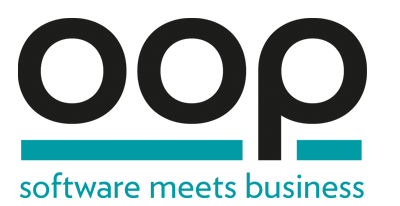Please note:
On this page you will only see the English-language presentations of the conference. You can find all conference sessions, including the German speaking ones, here.
The times given in the conference program of OOP 2024 correspond to Central European Time (CET).
By clicking on "VORTRAG MERKEN" within the lecture descriptions you can arrange your own schedule. You can view your schedule at any time using the icon in the upper right corner.
Thema: Project Management
- Montag
29.01. - Mittwoch
31.01. - Donnerstag
01.02.
Are you ready to take your agile development practices to the next level? Join us for a hands-on and interactive workshop where we will explore the interdependencies of eXtreme Programming (XP) practices and how they can help you achieve success in your agile journey. Using the powerful technique of Wardley Mapping, we will uncover the gaps in your agile adoption and gain a new understanding of your actual agile capabilities.
Laptop (with browser access) is required.
Target Audience: Architects…
In this workshop, participants will roleplay fictive situations in groups of +/- 7 people.
- divided in groups
- everyone gets a random set of reaction cards (same as number of people in the group
- one person (disturber of the peace) selects a situation card
- the disturber acts out the situation
- everyone in the group selects a way to react and plays that.
- everyone gives their reaction card back
- disturber gives feedback about what the reactions do to them
- repeat until everyone has played a…
The Product Owner role in Scrum is vital, but lacks comprehensive guidance. This talk presents the SMIQ Method (Single Most Important Question), derived from the "48 hour book method," empowering Product Owners and Managers to translate customer needs into software requirements. It simplifies complex techniques into user-friendly steps for effective requirements engineering. The speaker's success in using this method for writing books, organizing conferences, and developing software highlights…
Stoic practitioners know they cannot control circumstances, other people or rather... they know they cannot control anything outside of the realm of their own choices. So as a Stoic Product Leader you should stop focussing on outcome (!). Outcome is always outside of your control. However the CHOICES you need to make the product vision and goals ARE within your power, within your control. So the best thing you can do as a (product) leader is improving the quality of your decisions and teach your…
As Agile product people we are in a unique position to influence a sustainable value chain for the development of our products. What we do matters, how we build things and what we build, matters. Or what we don’t build. In this talk we will dive into some principles of circular economy and the (radical) economic theory of Degrowth and how to apply these principles and ideas in our daily work as product people. Principles like refuse (to build something new), reuse and recycle in our whole…

